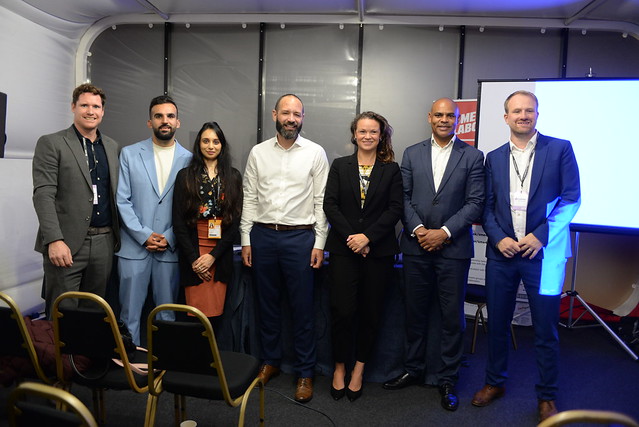The Labour Party Annual Conference 2023
SME4Labour and Ackroyd Lowrie fringe: How Can We Design and Build Cities That Will Provide a Fairer Future?
🗓 Date: Monday, 9 October 2023
⏳ Time: 10:00
📍Location: SME4Labour POD (Meeting Room 22), ACC Liverpool, Kings Dock Street, Liverpool, England, L3 4FP
SME4Labour, Councillors and Ackroyd fringed: How Can We Design and Build Cities That Will Provide a Fairer Future? with Jon Ackroyd, an award-winning chartered architect who co-founded Ackroyd Lowrie; Cllr Mete Coban, Cabinet Member in Hackney for Climate Change, Environment and Transport; Cllr Bella Sankey leader of Brighton & Hove City Council; Cllr Kieron Williams, the leader of Southwark Council; Marvin Rees, Mayor of Bristol and Cllr Krupa Sheth, Brent Council, Cabinet Member for Environment, Infrastructure and Climate Action. This panel discussion was chaired by Oliver Lowrie, an architect and co-founder of Ackroyd Lowrie.
In consideration of the means to effectively facilitate the imperative construction of housing, without undermining the intrinsic community identity and the pivotal role of local authorities, Cllr Bella Sankey articulated her insights. She alluded to the seven-year tenure of minority green administrations in Brighton, which, paradoxically, did not align with environmentally conscientious practices. She underscored the necessity for sustainable and well-distributed housing throughout the city, encompassing social and Council homes in diverse locations. Her emphasis lay in the creation of actual homes, as opposed to mere accommodation units.
In addressing the question of how to effectively utilize urban regeneration while safeguarding the interests of all individuals throughout the city’s transformation, Marvin Rees articulated his perspective. He stressed that initiating a regeneration process without clear definition and specific objectives is counterproductive. To ensure successful regeneration, he emphasized the importance of proactively guarding against gentrification. Engaging the communities affected by the transformation was deemed crucial. He emphasized the necessity of employing appropriate tools and methodologies to facilitate meaningful participation and ensuring that the voices of these communities are acknowledged. Collaboration with established and trusted groups was highlighted as a valuable approach in this regard.
In summary, The panel served as an interdisciplinary and cross-party forum, addressing the pressing challenges currently confronting our industry, with a specific focus on designing and constructing cities that offer a more equitable future. These urban centres grapple with formidable issues, encompassing housing shortages, struggling educational institutions, transportation problems, and the imperative of implementing environmentally sustainable policies. The overarching theme was the transformation of challenges into opportunities within the urban landscape. Panel participants sought to explore innovative solutions to these multifaceted urban problems and to reframe these challenges as avenues for progress and development in the cities of the future.

